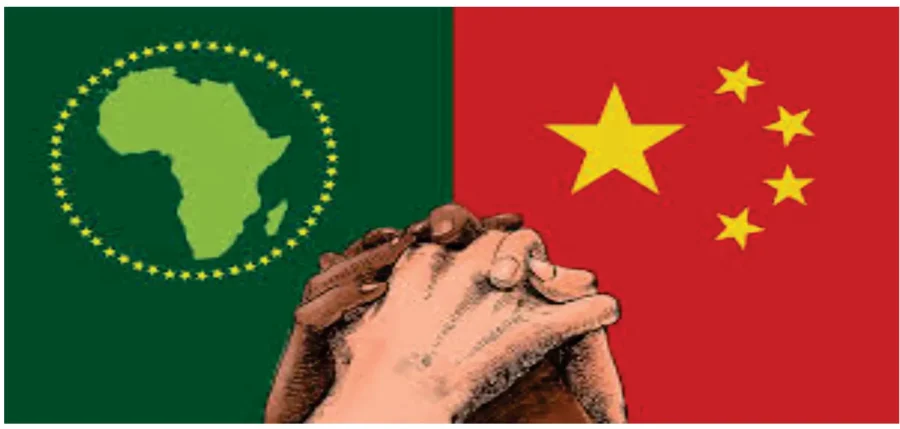The Chinese BRI has become one of the biggest stimulators of socio-economic development in the African continent. It has also further enhanced Africa-China relations in terms of diverse sectors of economy, investment, manufacturing, trans-regional connectivity, immense social development and, notably, energy & food security.
Africa has been benefiting from the BRI to boost infrastructure development. It is important for the African continent because primary infrastructure bottlenecks in energy, water, sanitation, telecommunications and transportation, along with low access to electricity, need to be removed for the continent to achieve its goals of boosting intra-African trade. The BRI is providing all parameters of human, social, economic, industrial, financial and banking development to help it become a vibrant partner in regional as well as global economic growth in the days to come.
Critical analysis confirms that the BRI is already helping Africa to improve infrastructure to make it easier to conduct more intra- regional and international trade, lower business costs, increase Africa’s domestic and international competitiveness, and thus experience economic success and sustained growth.
The existence of BRI has revolutionized the concept of inter and trans-regional connectivity in African continent which is financed and sponsored by the Chinese-built projects aligns with Africa’s ambitions for the next 50 years, including achieving inclusive social and economic growth by ending poverty, inequalities of income and opportunity, and creating decent jobs, among others.
Besides economic cooperation, China and African countries are connected by their shared desire to advance the South-South agenda. It is obvious that the countries of the Global South broadly applaud China’s resolve to forge partnerships based on equality and respect and its commitment to refraining from meddling in domestic issues.
Most recently, China’s Ministry of Commerce (MOFCOM) affirmed the fruitful achievements in recent years and promising potential of China-Africa economic cooperation, while offering encouragement for innovative investment collaboration in emerging sectors and calling for expanded economic ties with Africa.
Encouragingly, China’s investment in Africa has been on the increase and enjoys broad prospects. In 2023, its direct investment in the continent continued its upward trajectory, contributing to the industrialization and economic diversification process in Africa.
It is obvious that the economic collaboration between the two sides, driven by mutual long-term development strategies and economic imperatives, holds immense potential due to the strong complementarity between the two economies.
China invests heavily in Africa’s manufacturing and infrastructure sectors, with over $400 million annually and more than $37 billion contributed to infrastructure development. Collaboration between China and Africa spans various sectors, including the digital economy, green initiatives, aerospace, and finance, with a focus on encouraging cooperation, expansion, and innovation. Emerging sectors like new energy vehicles, lithium batteries, and photovoltaic products are experiencing substantial growth, supporting Africa’s transition to green energy.
Participation in the Belt and Road Initiative (BRI) has led to a significant increase in construction contracts and investment from African countries, driven by the demand for minerals essential to industries like electric vehicles and renewable energy. China prioritizes local welfare and social benefits in its collaboration with Africa, without imposing political conditions. Critical infrastructure projects in transport, energy, power, housing, and livelihood sectors have boosted local economic growth and living standards.
Recently, China granted zero-tariff treatment to six least-developed African countries, exempting 98% of taxable products from import tariffs. This move aims to enhance trade between China and Africa while demonstrating China’s cooperation with other markets and fulfilling its responsibility under the WTO-led Aid for Trade Initiative.
Over the past two years, 21 African countries have benefited from China’s elimination of tariffs on 98 percent of their taxable products. It aims to embody the spirit of China-Africa friendship and cooperation, and facilitate a high-quality China-Africa community with a shared future. In the next step, China will expand its zero-tariff treatment to all the least-developed countries with which it has established diplomatic relations.
In addition to boosting bilateral trade, the zero-tariff treatment will help African countries with their post-pandemic economic recoveries. The tax exemption is also a major implementation of China’s commitments made at the 8th Forum on China-Africa Cooperation held in 2021, including further increasing the scope of products enjoying zero-tariff treatment for the least-developed countries having diplomatic relations with China.
In summary the tax exemption will bolster trade, especially for the booming agricultural sector, while promoting more high-quality African products to enter the Chinese market at more competitive prices.
China remained Africa’s second-largest export destination for agricultural products in 2022, with total imports worth $5.20 billion. The export volume of agricultural products from Madagascar, Mali and Mauritania to China remains relatively good, so the tax exemption policy is beneficial for these countries.
For China, new sources of agricultural imports can beef up food security and diversify its import sources, and the Yuan’s internationalization will also gain momentum. The DRC is an important producer of cobalt while Angola is a major exporter of crude oil and diamonds.
China-Africa trade in the first 11 months of the year totaled 1.81 trillion Yuan ($253.65 billion), a year-on-year increase of 7 percent. The zero-tariff treatment will have a demonstration effect on China’s exchanges with other markets, especially the Global South countries.
Attributes of economic stability, sustainability and solidification are attached with the African continent which has great potential and prospect of socio-economic prosperity and trans-regional connectivity. Moreover, the African continent is rich in essential minerals & metals of green transformation technologies. Thus China-Africa trans-continent cooperation is good for both sides creating win-win situations and propositions under the flagship of BRI.









